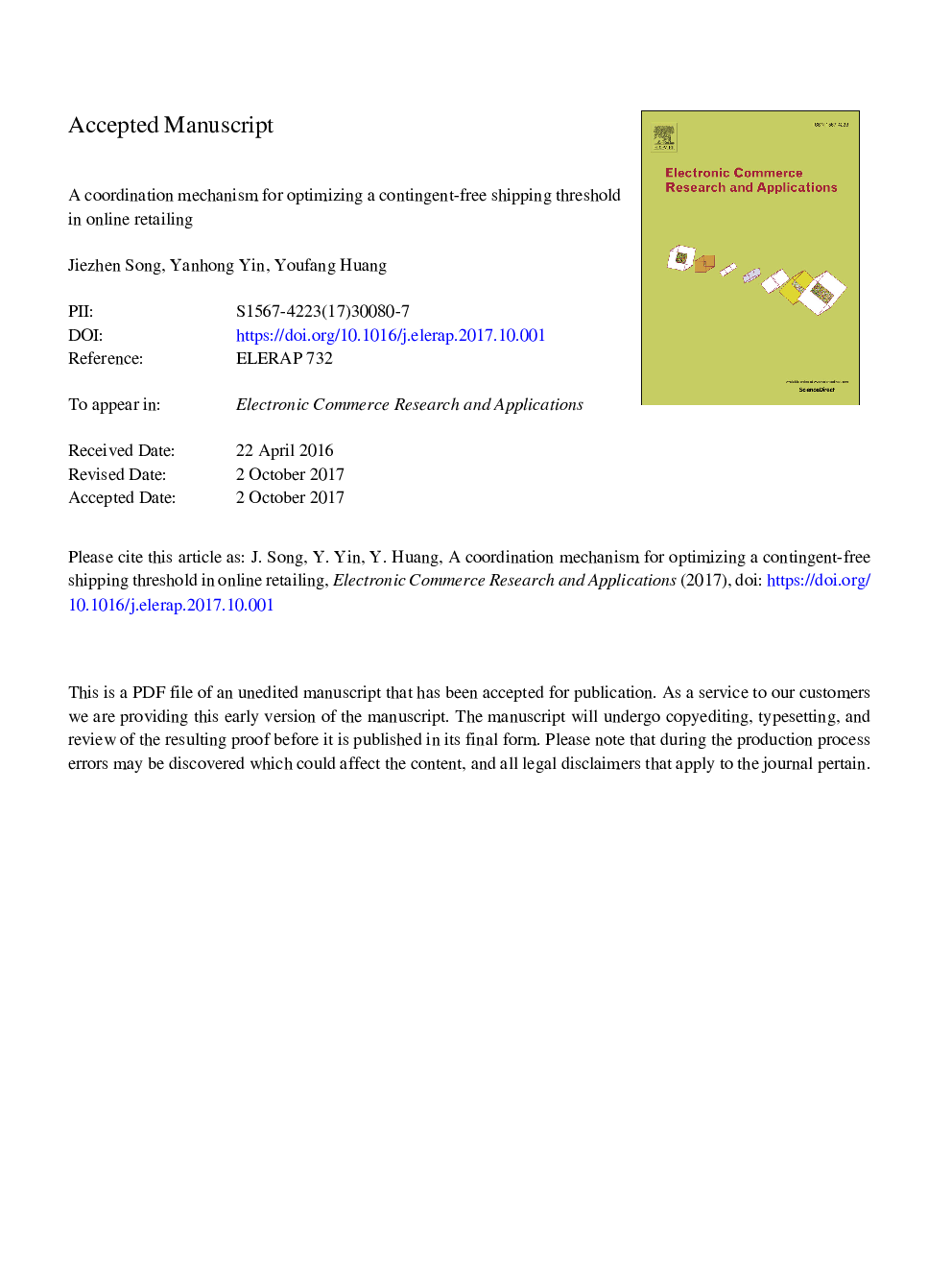| Article ID | Journal | Published Year | Pages | File Type |
|---|---|---|---|---|
| 4942484 | Electronic Commerce Research and Applications | 2017 | 25 Pages |
Abstract
Shipping policy is critical for online retailing from a Marketing and Economics perspective. To design the most suitable contingent-free-shipping (CFS) policy, this paper proposes a coordination mechanism between an online retailer and a delivery operator in a decentralized supply chain. Since the CFS policy affects not only the amount of consumer orders but also the real order value, we first analysed the consumers' purchasing decision based on the consumer utility theory. Next, we applied a Stackelberg model to simulate how the delivery operator decides the price of the delivery service and the retailer sets the CFS threshold in succession. Compared to the centralized case, the optimal CFS threshold is higher in the decentralized case without coordination. The expected profit of the whole supply chain decreases by 25%. We further propose a mechanism that uses modified quantity discount contracts to coordinate the supply chain. The results show that our QD contract design may aid in coordinating the supply chain and compel the retailer to choose the system-wide optimal threshold value. Finally, we present a numerical example to illustrate the findings of the models and provide suggestions for applying quantity discount contracts.
Related Topics
Physical Sciences and Engineering
Computer Science
Artificial Intelligence
Authors
Jiezhen Song, Yanhong Yin, Youfang Huang,
